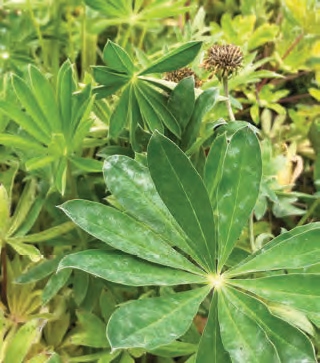Irish weather and protected environments are highly favourable for foliar diseases of fruit, vegetable and ornamental crops. The financial impacts of a loss of quality and reduction in yield are considerable. The widely used and effective plant protection product Chlorothalonil was withdrawn from sale in 2019 and had its last use-by date in May 2020. Its popularity was in part due to its effectiveness and relative lowcost c.€7.50/ha. Chlorothalonil is a broad-spectrum fungicide and was the cornerstone of powdery mildew control for ornamental plants, Alliums and Brassicas. Familiar brand names included Bravo, Folio Gold, Fielder and Daconil.
The product was especially useful as it has a multisite activity that helps to prevent a build-up of fungal resistance to other fungicides. Resistance has developed to commonly used morpholine and SDHI fungicides, especially in tillage crops.
It is important for growers to consider resistance when planning crop protection programmes. As part of integrated management plans, growers should select, where possible, the most favourable conditions for the plants, select resistant varieties and alternate modes of action of fungicides. While Chlorothalonil was the most effective of the multisite actives available, other options still available are worth using as part of a resistance prevention strategy. These include; Copper, Sulphur, Mancozeb and Folpet. However, specific crop approval is not available for all these products. Mancozeb has numerous trade names and has approval for use in many field vegetables and ornamental crops, while Folpet is not approved for use on vegetables. Arizona, Phoenix and Mirror are trade names of Folpet, which is regarded as a relatively lowcost product with a cost of c. €11/ha. Growers are advised not to rely solely on limited fungicide active ingredients, for example, triazoles or strobilurins. In the on-going review of the registration of plant protection products, there will be a clear need for alternative products for horticultural use in an effort to prevent fungicide resistance.
For more information about appropriate products and strategies to prevent foliar disease this season, contact Dónall Flanagan at Teagasc. ✽








